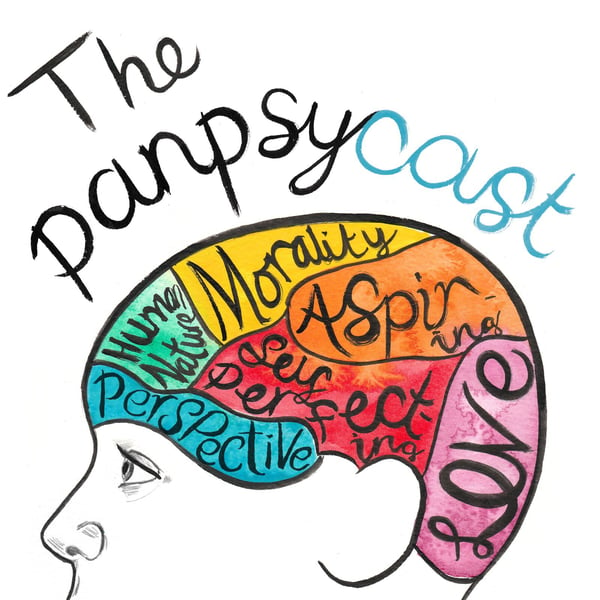Episode 30, Friedrich Nietzsche with Mark Linsenmayer and Gregory Sadler (Part I)
The Panpsycast Philosophy Podcast
Jack Symes | Andrew Horton, Oliver Marley, and Rose de Castellane
4.8 • 604 Ratings
🗓️ 24 December 2017
⏱️ 66 minutes
🧾️ Download transcript
Summary
This episode is proudly supported by New College of the Humanities. To find out more about the college and their philosophy programmes, please visit www.nchlondon.ac.uk/panpsycast. Everything you could need is on www.thepanpsycast.com! Please tweet us your thoughts at www.twitter.com/thepanpsycast. The Partially Examined Life: www.partiallyexaminedlife.com. Gregory B. Sadler on YouTube: www.youtube.com/gbisadler. Born in Rocken, in Prussia in 1844, Nietzsche set out his career in philology but later turned to writing idiosyncratic philosophical treatise and collections of aphorisms. He directed these against the pious dogmas of Christianity and traditional philosophy. He saw both as self-serving veils drawn over the harsher realities of life. He felt we needed not a high moral or theological ideals but a deeply critical form of cultural genealogy that would uncover the reasons why we humans are as we are and how we have come to be this way. He believed that every great philosopher actually a kind of involuntary and unconscious memoir rather than conducting an impersonal search for knowledge. Studying our own moral genealogy cannot help us escape or transcend ourselves but it can enable us to see our illusions more clearly and lead a more vital, assertive existence. There is no God in this picture. The human beings who created God have also killed him. It is now up to us alone. The way to live is not to throw ourselves into faith but into our own lives, conducting them in affirmation of every moment, exactly as it without wishing anything was different and without harbouring resentment for others or our fate (Sarah Bakewell, The Existentialist Cafe, p.19-20). Part I. What is the philosophical underpinning of Nietzsche? (36:40 in Part I), Part II. An Introduction to Nietzsche’s Thought (50:00 in Part I), Part III. What can Nietzsche teach us? (00:05 in Part II), Part IV. Further Analysis and Discussion. (28:15 in Part II).
Transcript
Click on a timestamp to play from that location
| 0:00.0 | The following is a quote from Sarah Bakewell from her book The Exessentialist Cafe. |
| 0:12.0 | Born in Rocken in Prussia in 1844, Nietzsche set out his career in philology but later turned to writing idiosyncratic philosophical treaties and collections of Afronisms. |
| 0:23.6 | He directed these against the pious dogmas of Christianity and traditional philosophy. |
| 0:28.6 | He saw both as self-serving veils drawn over the harsher realities of life. |
| 0:32.6 | He felt we needed not a high moral or theological ideal, but a deeply critical form of cultural |
| 0:38.2 | genealogy that would uncover the reasons why we humans are as we are, and how we have |
| 0:42.7 | come to be this way. |
| 0:44.3 | He believed that every great philosophy was actually a kind of involuntary and unconscious |
| 0:48.6 | memoir, rather than conducting an impersonal search for knowledge. |
| 0:52.8 | Studying our own moral genealogy cannot help |
| 0:56.1 | us escape or transcend ourselves, but it can enable us to see our illusions more clearly, and |
| 1:01.6 | lead a more vital, assertive existence. There is no God in this picture. The human beings |
| 1:06.5 | who created God have also killed him. It is now up to us alone. The way to live is not to throw |
| 1:11.8 | ourselves into faith, but into our own lives, conducting them in affirmation of every moment, |
| 1:16.6 | exactly as it is, without wishing anything was different, and without harboring resentment |
| 1:21.4 | for others or our fate. Hello and Merry Christmas, welcome to episode 30 of the Pan Scicast. |
| 1:41.5 | I'm Jack Symes and I'm joined once again by the man ridden by slave morality, |
| 1:47.1 | Mr. Ali Marley. Hello. The Overman, Mark Linson Meyer. Good afternoon. And the power-willing |
| 1:55.2 | Dr Gregory Sadler. Nice to meet you. Welcome, fellow overmen. |
| 2:01.6 | It's great to have you all on the show for a very special Christmas episode, episode 30. |
| 2:06.4 | I say we begin with some formal introductions to those who don't know who you both are. |
| 2:11.9 | So let me objectify you briefly. |
... |
Please login to see the full transcript.
Disclaimer: The podcast and artwork embedded on this page are from Jack Symes | Andrew Horton, Oliver Marley, and Rose de Castellane, and are the property of its owner and not affiliated with or endorsed by Tapesearch.
Generated transcripts are the property of Jack Symes | Andrew Horton, Oliver Marley, and Rose de Castellane and are distributed freely under the Fair Use doctrine. Transcripts generated by Tapesearch are not guaranteed to be accurate.
Copyright © Tapesearch 2025.

